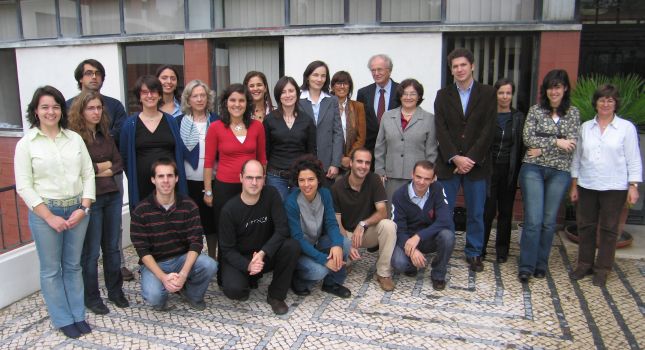The emergence of antibiotic resistance
Oeiras, 24.04.2017
The emergence and rise of resistance in staphylococci against the single most important class of antibiotics- the penicillin-like agents - has been one of the greatest concerns of the scientific and medical communities for the past several decades. This resistance is due to the acquisition of a gene, mecA, that encodes for a protein that circumvents the action of β-lactam antibiotics allowing bacteria to grow even in the presence of the antibiotic. The mecA gene is not native to the pathogen Staphylococcus aureus and the question of exactly how and from what specific source this gene was acquired has remained largely elusive.
ITQB NOVA researchers from the Laboratories of Hermínia de Lencastre and Maria Miragaia have now demonstrated how a native and inoffensive bacterial gene of the non-pathogenic species of Staphylococcus sciuri group has evolved into a determinant of resistance that makes chemotherapy by β-lactams virtually impossible. The results highlight that antibiotic pressure in the human environment and in food additives used in livestock was the major driving force of evolution. The molecular strategies that originated resistance involved alterations in the structure and amount of mecA encoded protein, acquisition of a mobile genetic element and adaptation of the bacterial genetic background.
The results, which were the product of an international collaboration of colleagues from Portugal, Switzerland, Denmark, United Kingdom and the USA, were published today in PLOS Genetics.

Research Team at Microbiology of Human Pathogens Unit
“The purpose of this study was to identify the evolutionary steps that allowed harmless bacteria become resistant to β-lactam antibiotics”, said Maria Miragaia, researcher responsible for the project. “Our results underline the importance of controlling the use of antibiotics in the environment and hospitals, to limit and prevent the emergence of new resistant genes”.
Original article
PLOS Genetics13(4): e1006674
Evidence for the evolutionary steps leading to mecA-Mediated β-lactam resistance in staphylococci
Joana Rolo, Peder Worning, Jesper Boye Nielsen, Rita Sobral, Rory Bowden, Ons Bouchami, Peter Damborg, Luca Guardabassi, Vincent Perreten, Henrik Westh, Alexander Tomasz, Hermínia de Lencastre, Maria Miragaia*
In the media
Como evoluiu o gene inofensivo que agora permite a bactérias resistirem a antibióticos, SIC Notícias, 24.04.2017
Noticiário das 20h, Antena 1, 24.04.2017
Investigadores demonstram forma de evoluir de gene que resiste a antibióticos, Sapo 24, 24.04.2017
Portugueses mostram como genes das superbactérias evoluem para resistir a antibióticos, Sapo Lifestyle, 24.04.2017
Investigadores demonstram forma de evoluir de gene que resiste a antibióticos, Diário de Notícias Madeira, 24.04.2017
Investigadores demonstram forma de evoluir de gene que resiste a antibióticos, NetMadeira, 24.04.2017
Investigadores demonstram forma de evoluir de gene que resiste a antibióticos, TecITT, 24.04.2017
Revelada a forma como evolui o gene que resiste a antibióticos, Notícias ao minuto, 24.04.2017
Investigadores demonstram forma de evoluir de gene que resiste a antibióticos, NetFarma, 24.04.2017
Investigadores demonstram forma de evoluir de gene que resiste a antibióticos, Atlas da Saúde, 24.04.2017
Descodificado gene em bactérias envolvido na resistência a antibióticos, TV Europa, 27.04.2017
Investigadores do ITQB NOVA demonstram como apareceu o gene da resistência a antibióticos em bactérias, Universia News, 28.04.2017
Como surge a resistência bacteriana?, Diário de Coimbra, 30.04.2017
Como apareceu o gene da resistência a antibióticos em bactérias?, Notícias do Nordeste, 2.05.2017







